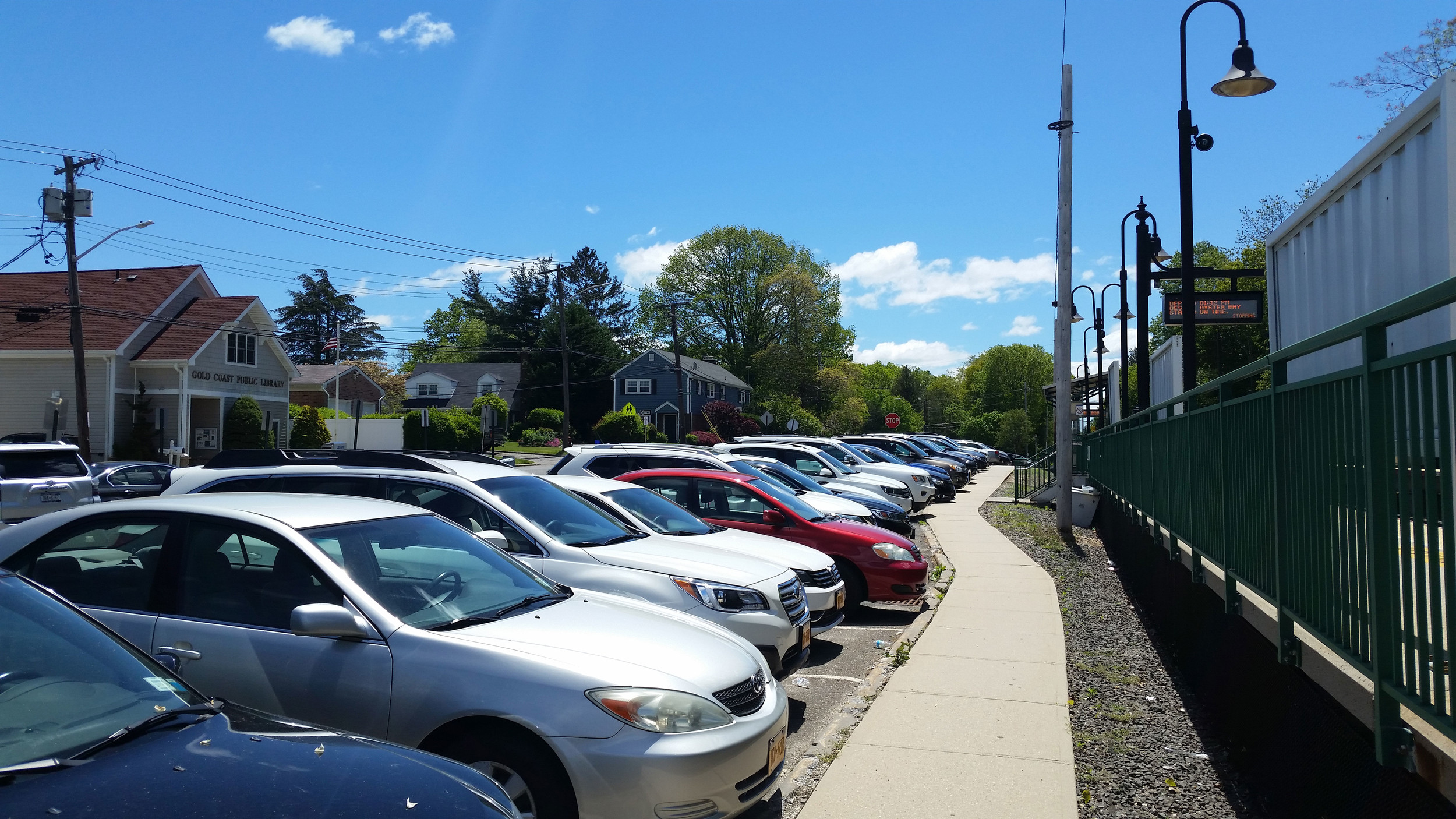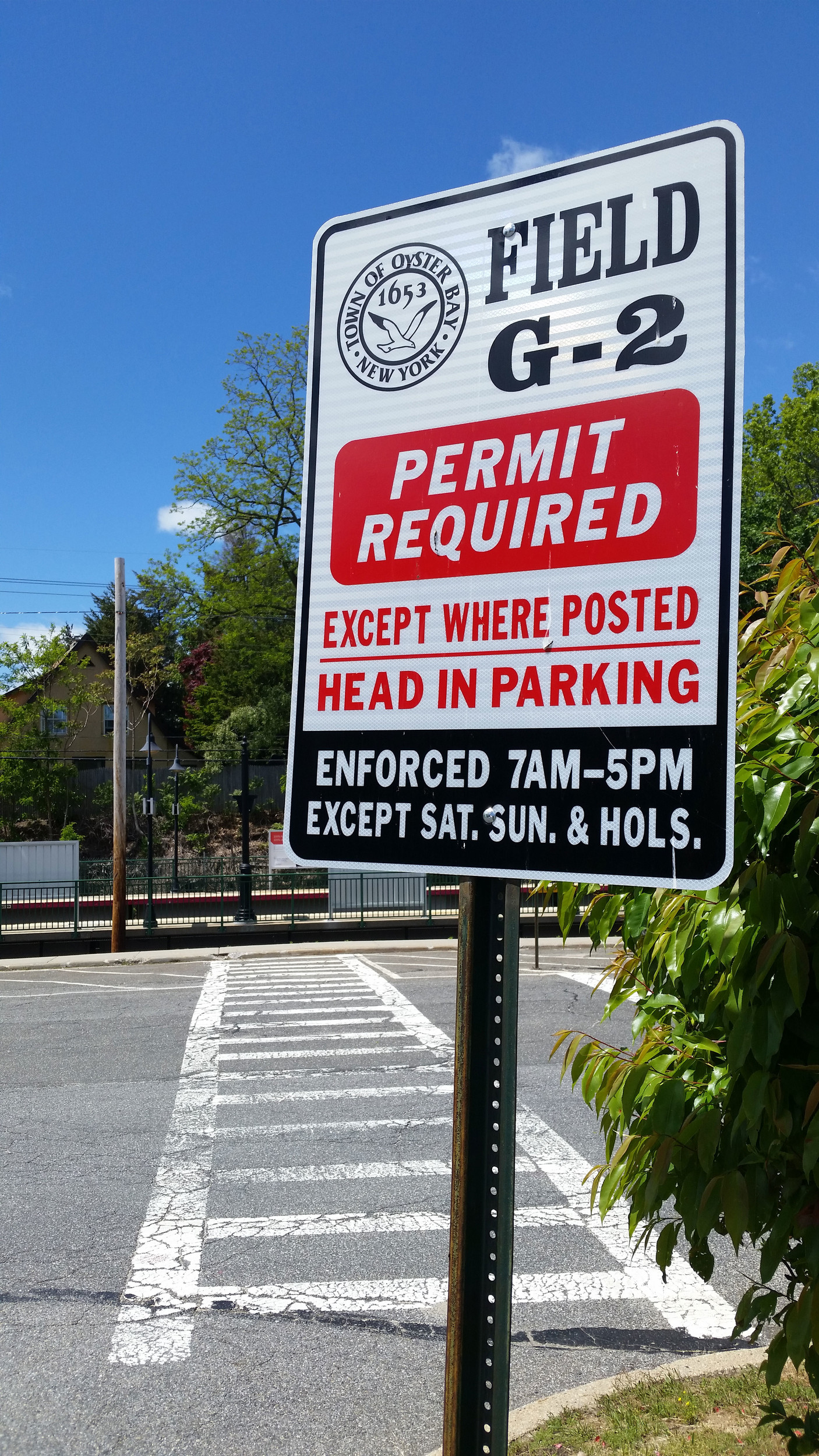Parking problems persist at the library
It has been almost a year since the Town of Oyster Bay added parking restrictions to the lot between the Gold Coast Public Library and the Long Island Rail Road station in Glen Head. In the months since the town erected four parking permit signs at entrances to the lot in September, there have been several residents without permits whokl have received tickets that carry a $150 fine.
“Many people in this community don’t pay more than $100 in taxes per year for the library,” said its director, Mike Morea. In the past, there were several parking signs in the lot, he added, which indicated spots that were restricted. But now the town’s ‘Permit Required’ signs are spread out around the lot’s entrances and not always easy to see. Some residents are still getting used to the new arrangements, sometimes after getting a ticket.
Friends of the Gold Coast Library member Rosemarie Cartagine said that the town has created four 15-minute parking spots near the entrance of the library along with two-hour spots near its annex. But there are still problems. “There are programs that last more than two hours,” Cartagine said. “Whenever the library features a movie for residents, they literally have to stop the film at some point in order for people to go outside and move their car to another spot.”
She added that patrons sometimes have to park on side streets to avoid risking getting a ticket. She said she hoped more residents would express their concerns to the town. “There should be some easy fixes on this issue,” Cartagine said. “The best way for us to move forward is to get more support and involvement from the community. That’s the key.”
Town spokesman Brian Devine said that the Highway Department has worked closely with the library since the signs were installed last year. “If there was an outcry from the residents in that area, it would have been corrected very quickly,” Devine said. “We certainly look to be responsive to concerns regarding the needs of commuters, businesses and libraries as well.”
Morea said that library circulation has been stable since the new signs were erected. However, the total number of people who walked into the library dropped from 95,813 in 2015 to 82,543 in 2016. That number does not include those who pull up to the entrance to use the book return. Morea added that digital use of library resources has risen over the past year, but fewer people are enjoying the experience of going to the library.
“Libraries in the 21st century have become a place where you go to learn and better yourself,” he said. It’s hard for patrons to stay in the library, he said, when they are worried about moving their car elsewhere to avoid a ticket. “The parking restrictions won’t necessarily keep you from getting the book you want, but it will keep you from doing all of the other activities that our library has,” he added.
Morea suggested that repositioning the signs could make patrons more aware of the parking restrictions. Moving forward, he said, the library’s board of trustees would continue to look for ways to resolve problems that concern their users. “Even though we don’t have control over the lot,” he said, “we’re doing what we can to make sure the community can get everything they can out of their investment.”









